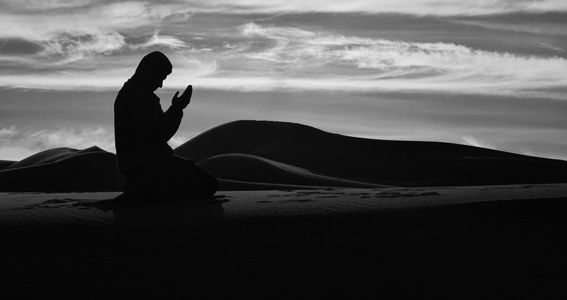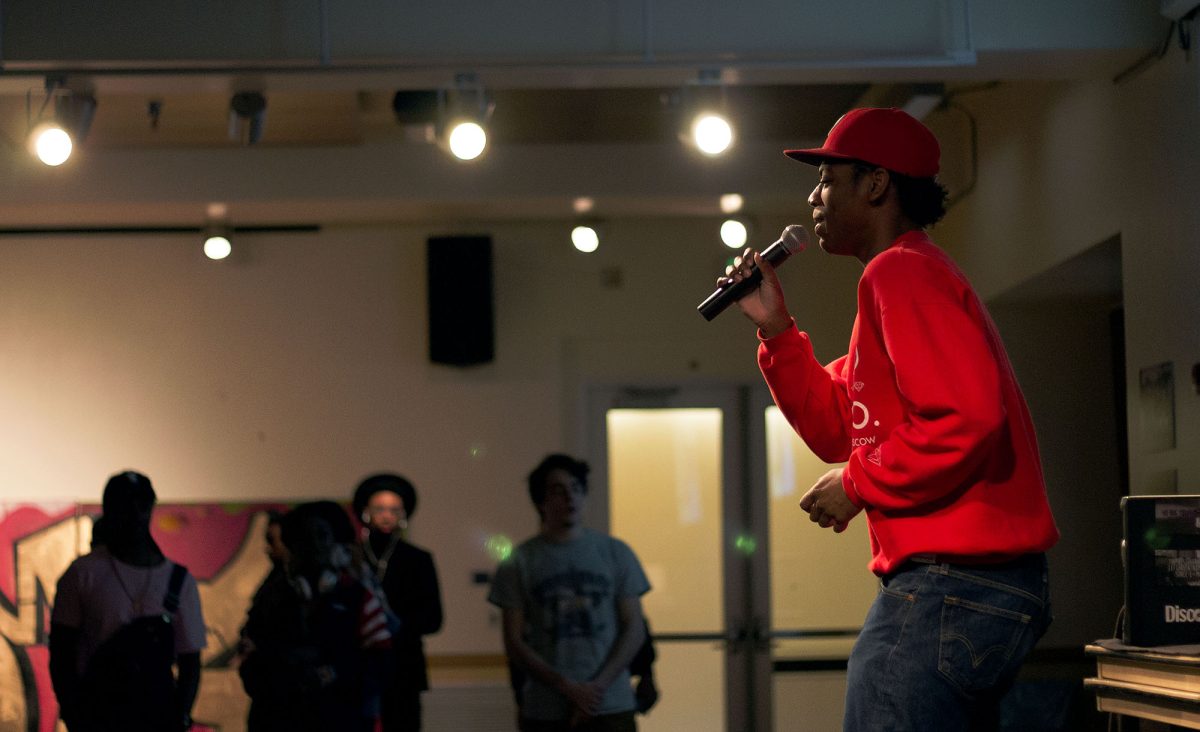An Oregon native speaks on faith and government.
Story by Mat Wolf
Photo by Shane Connor
The captive man sat in the back of the prison transport vehicle confused, disoriented, and at a complete loss as to why he was handcuffed by two FBI agents and being charged as a co-conspirator in an international terrorism case. One of the agents leaned over and hissed, “You remember Mike Hawash, don’t you Brandon? You remember how all the brothers stuck up for him, right? Well they won’t stick up for you.”
Nearly six years later, as he sits back, speaking about his ordeal to Ethos, Brandon Mayfield hardly seems like the kind of man capable of terrorism. Of average height and small build, Mayfield drives an apple-red all-American sports car and wears a reddish-brown beard speckled with gray. At a burger joint in Beaverton, the interview location of his choosing, he eases back into a plastic booth with iced tea in hand. Taking a sip, Mayfield begins to describe the day two FBI agents came to his legal offices and forcibly took him into custody. “They looked to me like they were Jehovah’s Witnesses, or door-to-door salesmen or something,” Mayfield says. “They were in these suits, and they said they were with the FBI, and they asked if they could come in.”
He initially resisted the two agents, completely unaware that he was a suspect, and insisted that the federal agents return with a warrant. They would not take no for an answer. In a matter of seconds, Mayfield was in custody. “They forced me down to my desk and handcuffed me, and they really worked over my shoulder,” Mayfield recalls. “They wrenched it down and partially dislocated it.”
Mayfield, a native Oregonian from Coos Bay, was brought up in what he describes as a relatively non-religious family of German-Mennonite descent between the Pacific Northwest and Kansas. Mayfield joined the United States Army in 1985, and while stationed at Fort Lewis, Washington he met and married his future wife, Mona. At about this time Mayfield says that he was coming closer to solving what he called a “long, slow, drawn-out search for an answer.”
Spurred by his wife’s Islamic faith and his own curiosity about cosmology and belief systems, Mayfield began to attend mosque and came to embrace the Islamic faith. Brandon left the military in 1994 as a second lieutenant in the army and went on to receive a law degree from Washburn University in Kansas, and soon began to practice family law in the Portland area. After September 11, 2001, and the invasions of Afghanistan and Iraq, many Muslim-Americans found themselves under increased scrutiny from their newly paranoid neighbors. “Honestly, I looked at all the faces of the hijackers, and I was first off surprised to see how fast the media got a hold of those pictures,” Mayfield says, “I then looked at all their faces, and saw only Arabs and Southwest Asians, and I didn’t think that myself, or my wife, or my children would have to worry that much about being targets.”
This assumption would soon come back to haunt him.
Three years after 9/11 a series of violent explosions ripped through the commuter train system of the Spanish capital, Madrid. This senseless violence killed 191 people and left at least another 1,800 injured. Spanish authorities were on the hunt for the perpetrators of the attack and their possible motives. Among the evidence in the investigation was a set of fingerprints that would have far reaching consequences outside of Spain, as these prints, once cross-referenced with an American database, would result in the arrest and detention of an American attorney from Oregon.
The U.S. government determined that these fingerprints, found on a recovered bag of detonators, to be enough evidence to arrest Mayfield, who may have already been under surveillance for his connections to a group known as the “Portland Seven.” The Portland Seven was a group of Portland-area Muslims, who had been tried by the U.S. government for attempting to travel to Afghanistan to fight U.S. forces in 2002.
One of the seven, a Palestinian-born American named Maher “Mike” Hawash, had been a respectable community leader who worked for the Intel Corporation in Beaverton. When he was charged and arrested as a material witness to terrorism, many of his coworkers, including non- Muslims, came to his defense, declaring that he was not the kind of person who would betray his adopted country and the erroneous charges against him should be thrown out. All of this support dissipated when Hawash was found guilty of conspiring to aid the Taliban.
The FBI agents in control of Mayfield’s fate, as he sat confined to the backseat of their car, seemed all too eager to remind him of Hawash.
In his role as a family law attorney, Mayfield had also offered legal assistance to Jeffrey Leon Battle, another member of the Portland Seven. In 2003, Battle was involved in a child custody case and was briefly introduced to Mayfield through intermediaries at the mosque that both men attended. “There are over 300 people who attend that mosque on Fridays, and I really didn’t recognize [Battle],” Mayfield says. “Someone had introduced us because I was a Muslim and a lawyer who practiced family law.”
Prior to his arrest in May of 2004, Mayfield had suspected the U.S. government of monitoring him, though he was unaware of why. On two occasions in April, the Mayfield family had returned home to find a deadbolt locked on a door that was always left unlocked. The Mayfields also never wore shoes in their home, a fact that clashed suspiciously with the shoe prints they found on a carpet. Wiring and electrical problems, as well as an overly paranoid pet cat indicated to the family that they were not alone. Mayfield also began to believe that his computer hard drives, both at home and at his office, had been tampered with. “It was quite surreal,” he says, “like after a while it becomes that if you’re Muslim and you’re in the United States, you expect it, you expect to get arrested.”
He was held for two weeks under a material witness charge, and was granted only limited access to legal counsel, and even less access to his family, who were still unaware of what charges Mayfield was being held for. By May 20, the Spanish government was insisting that the prints the U.S. Department of Justice considered to be Mayfield’s actually belonged to an Algerian national named Ouhnane Daoud, whose ties with a Moroccan based terror cell were already under investigation. Daoud’s whereabouts are unknown, but he is rumored to have died fighting in Iraq. The Federal Government released Mayfield immediately and dropped all charges against him by May 25, 2004.
Mayfield went on to sue former Attorney General John Ashcroft and the Department of Justice, citing violation of Constitutional rights. He was awarded $2 million dollars in a case that was eventually settled outside of court. Currently, he’s involved in continuing legal proceedings against the U.S. Government concerning the Fourth Amendment probable cause statutes of the U.S. Constitution. The U.S. Ninth Circuit Court of Appeals rejected Mayfield’s appeal late last year, but according to Mayfield, he and his representation will continue to pursue legal action.
Ultimately, Mayfield believes that his entire detention was a scam, and the FBI rushed to arrest him in order to divert attention away from the Abu Ghraib prison scandal during the 2004 election. “There are definitely some Muslims doing nefarious things, despicable things, but that’s absolutely not everyone,” he says. Mayfield placed his hand firmly on the table before him, like a door closing after a final statement. “This was an example of just what kind of mistake that can be. It’s an erosion of civil liberties, the fourth amendment, and our rights to privacy.”
Categories:
In Lieu of Civil Liberty
March 29, 2010
0
Donate to Ethos
Your donation will support the student journalists of University of Oregon - Ethos. Your contribution will allow us to purchase equipment and cover our annual website hosting costs.
More to Discover















